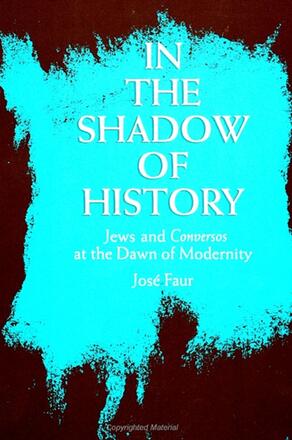
In the Shadow of History
Jews and Conversos at the Dawn of Modernity
Description
This book focuses on the Iberian Jews and conversos, Jews who converted to Christianity. It explores the idea of the "other" in both Jewish and Christian traditions, the differences between the perspectives of the "persecuted" and "persecutors," and the vision of modernity among some of the Iberian Jews of the period. Special attention is devoted to da Costa and Spinoza, offering a new perspective on the Jewish history of ideas.
José Faur is Research Professor at the Sephardic Heritage Foundation in New York City. He is the author of La Espiritualidad Judia; 'Iyyunim wu-Mehgarim be-Mishne Tora le-Harambam, Vol. 1; Rabbi Moshe Yisrael Hazzan: The Man and His Times; and Golden Doves with Silver Dots: Semiotics and Textuality in Rabbinic Tradition.
Reviews
"José Faur's In the Shadow of History is a stunning portrayal of how the converso thinkers of sixteenth century Spain may have stimulated the emergence of scientific skepticism in modern Europe. Faur combines extensive text-historiographic research with penetrating philosophic analysis and then presents us with his conclusions in the context of a bold speculative vision of the telos of modern Jewish and modern western thinking. His book fills a historiographic lacunae in recent scholarship while also promoting a provocative thesis about the contributions of Spanish Jewry to the mind-set of modern Europe. " — Peter Ochs, Drew University
"Faur's book constitutes a kind of spiritual autobiography, in which the author's search for his family's intellectual roots takes the reader through a process of history 'recovered' par excellence. Within the realm of Jewish history, this book provides some fresh insights on the often studied phenomena of converso/marranos, going beyond the cataloging of acts of heroism and treachery, and instead focusing on those points common to all who faced the tragedy of Spanish Jewry. Faur manages to uncover a 'secret' history of ideas developed among the converso intellectuals, whose experience of rejection and racism generated literary reactions that would eventually undermine the society that mistreated them. " — Dr. Gershon Bacon, Bar-Ilan University